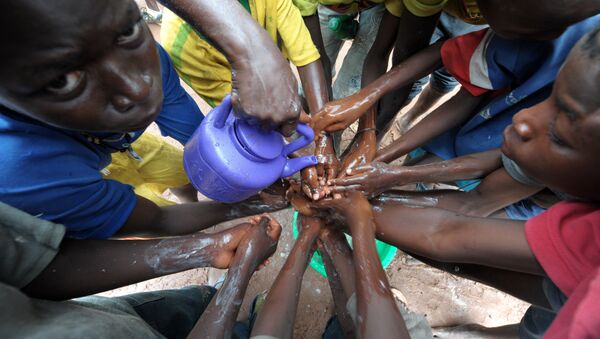In the capital Freetown, thousands of people gathered to celebrate the news. In August, the authorities had lifted a ban on public meetings that was imposed to halt the spread of the disease, which was first diagnosed there in May 2014.
Since then, the virus was confirmed to have claimed the lives of 3,589 people in the country. An additional 366 are suspected to have probably died as a result of it.
Freetown celebrates and reflects as #Ebola comes to an end in #SierraLeone pic.twitter.com/Onob4gBROa
— Nick Owen (@nickoowen) 6 ноября 2015
More than 14,000 people there were confirmed or suspected to have contracted the virus, the transmission of which peaked in September and October of 2014.
The massive rise in cases was curbed by an increase in the number of treatment facilities and amount of equipment, which allowed medical professionals to work with communities to stop the chain of transmission. Measures included the prompt identification and monitoring of people who may have been in contact with someone infected with Ebola, and the safe burial of Ebola victims.

"Since Sierra Leone recorded the first Ebola case in May 2014, a total number of 8,704 people were infected and 3,589 have died, 221 of them healthcare workers, all of whom we remember on this day" said Dr. Anders Nordström, WHO Representative in Sierra Leone.
The WHO declared the country virus-free after 42 days, or two Ebola virus incubation cycles, had passed since the last person confirmed to have Ebola virus disease had a second negative blood test.




